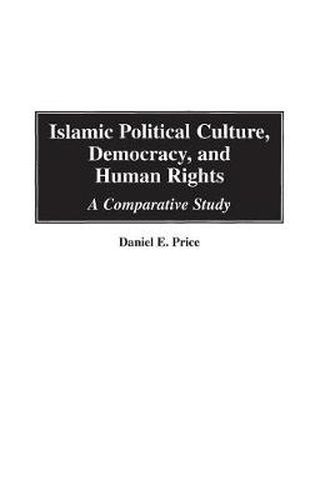Readings Newsletter
Become a Readings Member to make your shopping experience even easier.
Sign in or sign up for free!
You’re not far away from qualifying for FREE standard shipping within Australia
You’ve qualified for FREE standard shipping within Australia
The cart is loading…






What affect does Islamic political culture have on democracy and human rights practices? It has been argued that Islam facilitates authoritarianism, contradicts the values of Western societies, and significantly affects important political outcomes in Muslim countries. This view, Price argues, is based primarily on analysis of Islamic political theory and ad-hoc studies of individual countries, which do not consider other factors. Through rigorous evaluation of the relationship between Islam, democracy, and individual rights at the cross-national level, Price suggests that too much emphasis is being placed on the power of Islam as a political force. Comparative case studies, which focus on factors relating to the interplay between Islamic groups and regimes, economic influences, ethnic cleavages and societal development, are used to explain the variance in the influence of Islam on politics across eight nations.
Price argues that much of the political power that is attributed to Islam can be better explained by other factors. Indeed, the increasing strength of Islamic political groups has often been associated with democratization. To test these assertions, an index of Islamic political culture based on the extent to which Islamic law is utilized and how Western ideas, institutions, and technologies are implemented, has been constructed. This indicator is used in statistical analysis to analyze the relationship between Islam, democracy, and individual rights across 23 predominantly Muslim countries and a control group of non-Muslim developing nations. The results provide strong evidence that Islamic political culture does not have a significant influence on levels of democracy and the protection of individual rights in predominantly Muslim countries.
$9.00 standard shipping within Australia
FREE standard shipping within Australia for orders over $100.00
Express & International shipping calculated at checkout
What affect does Islamic political culture have on democracy and human rights practices? It has been argued that Islam facilitates authoritarianism, contradicts the values of Western societies, and significantly affects important political outcomes in Muslim countries. This view, Price argues, is based primarily on analysis of Islamic political theory and ad-hoc studies of individual countries, which do not consider other factors. Through rigorous evaluation of the relationship between Islam, democracy, and individual rights at the cross-national level, Price suggests that too much emphasis is being placed on the power of Islam as a political force. Comparative case studies, which focus on factors relating to the interplay between Islamic groups and regimes, economic influences, ethnic cleavages and societal development, are used to explain the variance in the influence of Islam on politics across eight nations.
Price argues that much of the political power that is attributed to Islam can be better explained by other factors. Indeed, the increasing strength of Islamic political groups has often been associated with democratization. To test these assertions, an index of Islamic political culture based on the extent to which Islamic law is utilized and how Western ideas, institutions, and technologies are implemented, has been constructed. This indicator is used in statistical analysis to analyze the relationship between Islam, democracy, and individual rights across 23 predominantly Muslim countries and a control group of non-Muslim developing nations. The results provide strong evidence that Islamic political culture does not have a significant influence on levels of democracy and the protection of individual rights in predominantly Muslim countries.